Intervista esclusiva a Cyril Morin
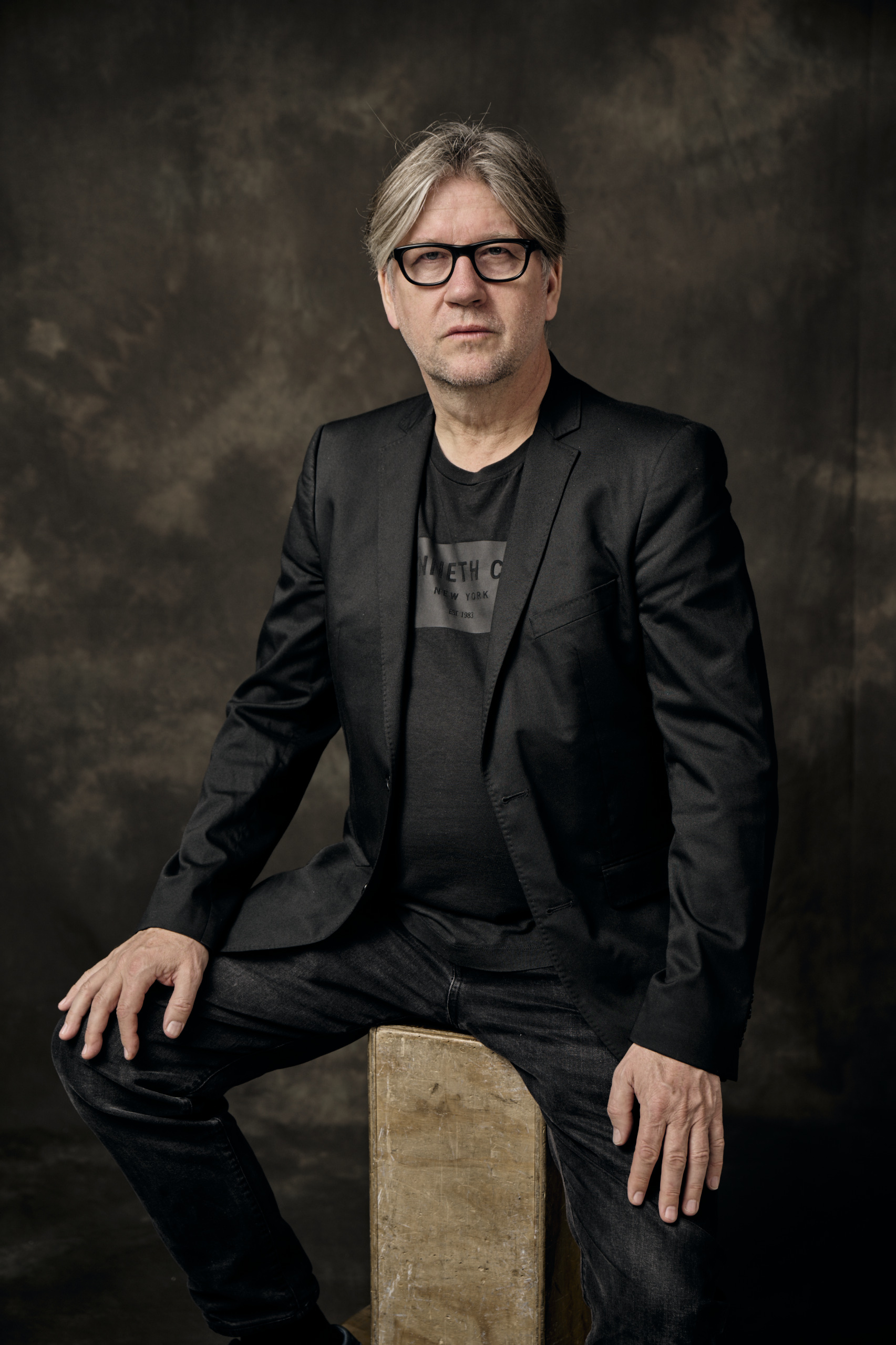
Spazio, strati di strumenti che creano emozioni, profondità: questa è la mia musica - Intervista esclusiva a Cyril Morin
Incontro il sessantunenne compositore, regista e sceneggiatore francese Cyril Morin per parlare del suo festival internazionale sulle colonne sonore nato e sviluppatosi da noi in Italia, precisamente in Puglia, regione mediterranea in grande fermento da molti anni a questa parte tra musica, arte e cinema, dal nome “Apulia Soundtracks Awards” che ha visto, tra i premiati, nomi del calibro di Simon Frangler (Avatar – La via dell’acqua), Lalo Schifrin (Bullitt, Ispettore Callaghan: il caso Scorpio è tuo!, Una 44 Magnum per l’ispettore Callaghan, I 3 dell’Operazione Drago, Brubaker, il tema della serie Mission: Impossible), Jean Michel Bernard (L’arte del sogno, Be Kind Rewind – L’acchiappafilm), Franco Piersanti (Il sol dell’avvenire, Il commissario Montalbano) e Fabio Massimo Capogrosso (Esterno Notte, Rapito). Con l’occasione abbiamo discusso della sua lunga carriera nell’ambito della musica applicata alle immagini.
Colonne Sonore: Fai la tua entrata nella musica applicata alle immagini a inizi anni ’90, scrivendo per alcuni cortometraggi e film TV. Da dove ha origine la tua passione per la musica e perché hai deciso di dedicarti alla composizione per il cinema e la televisione in particolare?
Cyril Morin: Per me la musica e il cinema sono stati separati per molto tempo fino agli anni ‘90. Suonavo la chitarra in diversi gruppi ed ero anche un grande appassionato di cinema. È stato più tardi che qualcuno ha detto che la mia musica si sposava bene con la narrativa cinematografica, dopo che avevo realizzato alcuni brani strumentali. Poi ho iniziato a crederci (ride). Poi ho capito che la mia mente immaginava suoni che non potevo riprodurre. Pensavo di sapere molto, ma non sapevo nulla. Sono tornato a studiare musica per molti anni. Dopo essere stato un front man, sono passato all’underground. Successivamente ho avuto la possibilità di avvicinarmi a direttori d’orchestra come Sergei Celibidache, Pierre Boulez e molti compositori contemporanei. Ho anche seguito un corso con i compositori italiani Franco Donatoni ma anche Xenakis, Nunes... Questi compositori erano alla ricerca di nuovi suoni. Mi ha aperto gli occhi. Ho dovuto cercare io stesso nuovi suoni. Il mio suono. Ciò è avvenuto con l’incontro con i registi e il mio primo lungometraggio è diventato Samsara.
CS: Quali ritieni sia la tua cifra stilistica nell’approcciarti alla musica per immagini?
CM: Mi ci è voluto un po' per rendermi conto che finalmente ero un narratore. E la musica è parte della narrazione, una delle narrazioni sempre interconnesse come il dialogo, la luce, il suono, la musica, il montaggio. Ho sempre messo la storia al primo posto e questo mi ha permesso di cambiare il mio stile nel corso degli anni. Ma è vero che torno spesso a un triangolo ripetitivo di suoni, orchestra, sintetizzatore e strumenti tradizionali.
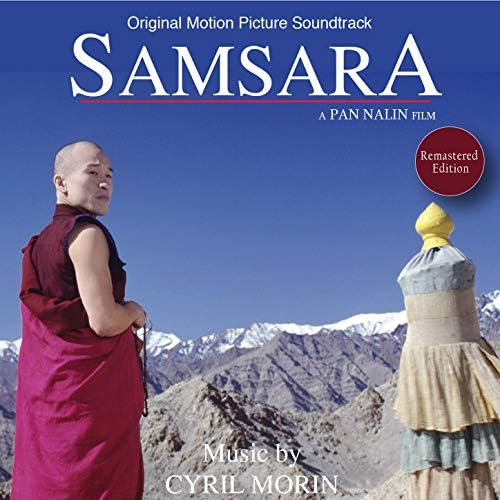
CS: Il pluripremiato film Samsara (Id.) del 2001 di Pan Nalin, viaggio spirituale avventuroso e sentimentale in Himalaya, ti ha visto un protagonista notevole con il tuo score. Che cosa rammenti di questo tuo lavoro che ti ha portato alla ribalta nel panorama cine-musicale?
CM: Questo film mi ha cambiato la vita. Ho iniziato a viaggiare con il film per la promozione e ho visto nuovi orizzonti, conosciuto nuove persone. Mi ha davvero aperto gli occhi. Non separerei la musica che ho composto per Samsara e la mia vita personale, la mia amicizia con Pan Nalin. A quel tempo, la filosofia del film, lo spirito indiano, era profondamente radicata nella mia vita. Stavo arrivando. Ed è sempre così. Non separo la mia vita da ciò che creo o con chi creo. Raramente c’è un confine. E poi è incredibile che io sia stato chiamato da tutto il mondo per realizzare colonne sonore con persone provenienti da tutto il mondo. È lo stesso adesso. Recentemente sono saltato da un film dall’India, poi dal Burkina, poi dal Canada/Regno Unito e poi dalla Grecia. È come questo. Sono ovunque e mai nello stesso posto. E questo è il mio panorama musicale ormai da anni. Un continuo cambiamento di culture, incontri, storie…
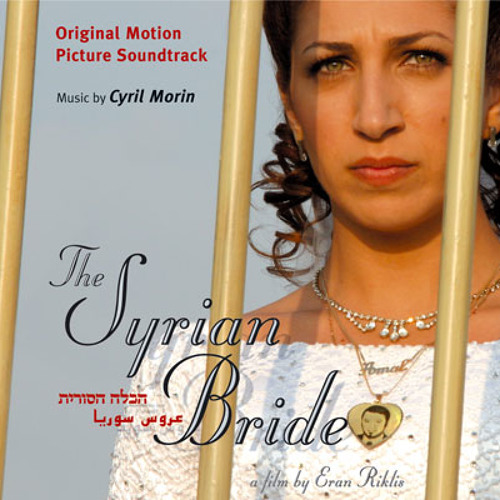
CS: La sposa siriana (The Syrian Bride) del 2004 con la regia di Eran Riklis ha ottenuto molti riconoscimenti importanti in molte parti del mondo e la tua partitura ha ricevuto la nomination ai prestigiosi World Soundtracks Award e agli European Film Award. Raccontaci come avete lavorato insieme tu e Riklis?
CM: Con Eran Riklis abbiamo formato una buona squadra con quattro film insieme. È stato anche un grande incontro e una lunga amicizia. Durante la post-produzione di questi film ho imparato che il cinema poteva davvero essere un esempio di collaborazione e creazione tra esseri umani. Al film La sposa siriana hanno lavorato insieme tutte le nazionalità, anche quelle a cui alcuni tentano ancora oggi di opporsi. Il cinema è davvero una collaborazione senza confini. È stata anche un’opportunità per lavorare con alcuni strumenti mediorientali che avevo in mente in quel momento.
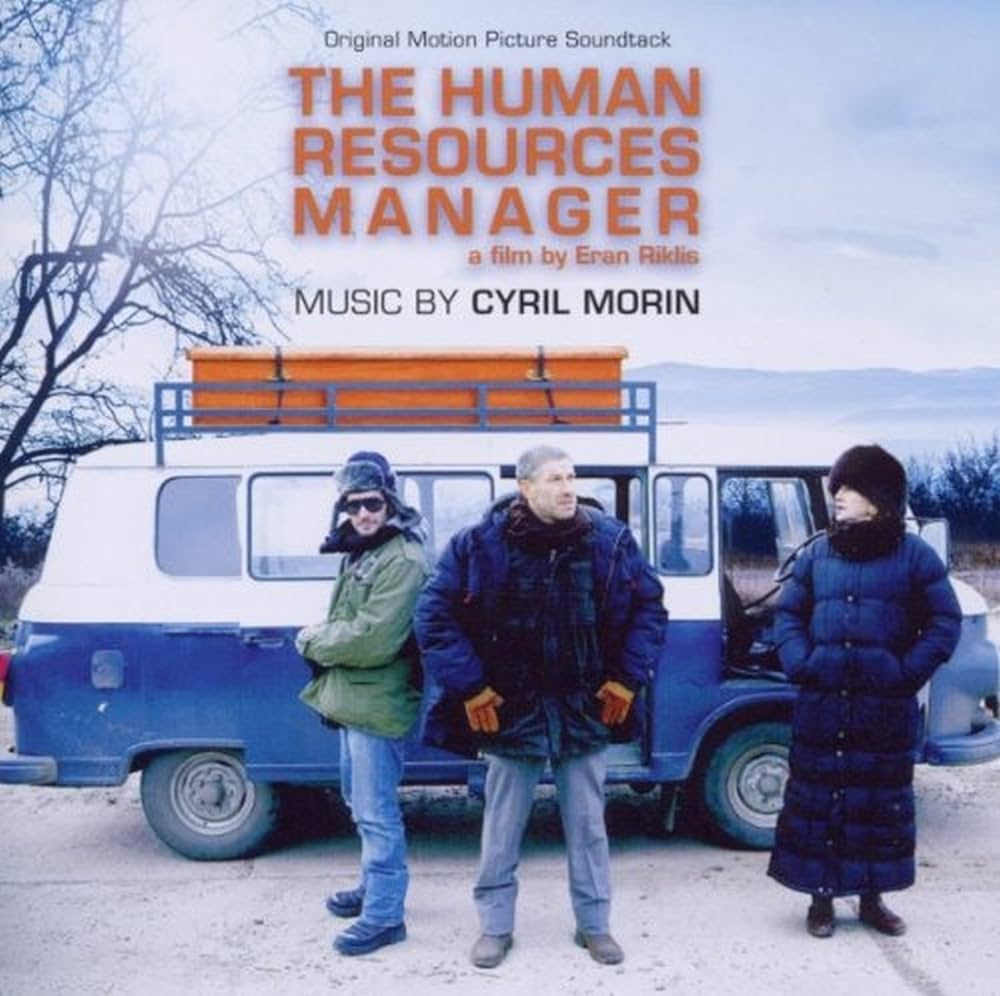
CS: A proposito di candidature e vittorie, tu ne hai ottenute molte in carriera, tra cui quella per l’osannato e plurivittorioso film Il responsabile delle risorse umane (The Human Resources Manager) (da noi recensito) del 2010, sempre di Eran Riklis con il quale hai stretto un ottimo sodalizio. Che importanza dai ai riconoscimenti?
CM: È importante perché questi premi e nomination sono pietre miliari della carriera. Recentemente ho vinto per la musica per un cortometraggio. Mi rende davvero felice. E non ho ricevuto molti riconoscimenti a scuola, quindi questi premi significano qualcosa (ride). Inoltre, è importante evolversi nella vita e nella carriera e non rimanere nello stesso posto, guardando in alto. Oggi mi sento come se avessi costruito qualcosa, un mix di crediti, esperienza e anche condivisione di questa esperienza con gli altri. Anche il mio rapporto con tanti compositori rientra in questa soddisfazione. Spesso condividiamo lo stesso viaggio.
CS: Sei anche regista e sceneggiatore. Il tuo film The Activist, un thriller del 2014 da noi ancora inedito, ti ha procurato diverse soddisfazioni e premi. Com’è stato passare dietro la macchina da presa ed essere non solo il compositore delle musiche dei film altrui?
CM: Ho scelto di dirigere film dopo aver composto più di 50 film degli anni 2000. Per una volta volevo essere all’origine di un progetto. Ma non ho mai fatto una separazione in termini di creazione tra le diverse arti. Penso che prima o poi dovrei farmi da parte e non restare sempre nella mia zona di comfort. Sono sicuro che, realizzando diversi film come regista, ho dimostrato di non temere nulla (ride). È importante seguire i tuoi sentimenti, anche se questo sconvolgerà le abitudini e ti mostrerà da una prospettiva diversa. Dopo un po’ ho bisogno di creare una nuova prospettiva, trasferirmi, andare in un altro paese, immergermi in un’altra cultura. E questo alimenta il mio lavoro con film e musica. Inoltre, dirigendo alcuni film, ho imparato a diventare un compositore migliore. So come si sente un regista adesso.
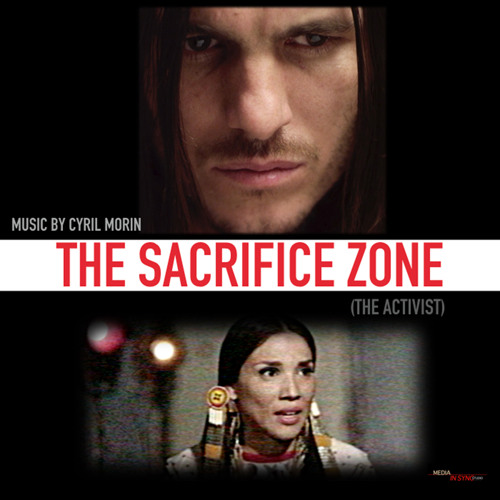
CS: Hai un film o corto o documentario o serie che non ho menzionato che ti ha particolarmente soddisfatto lavorativamente e ci spieghi il motivo?
CM: Recentemente ho realizzato un cortometraggio italiano Super Jesus (diretto da Vito Palumbo). Questo film viaggia molto in questi giorni. Riguardo al documentario... L’anno scorso ho realizzato la musica per un documentario italiano Il sindaco, io, Mussolini e il museo sulla città natale di Mussolini. È stato così interessante. Sempre l’anno scorso, ho riunito una piccola squadra nel Montana per intervistare Michael Spears, il nativo americano che interpreta il mio film The Sacrifice Zone. Avevo molte domande da fargli sulla sua cultura. Il film non è ancora uscito, ma tutti i soggetti delle interviste possono ora essere trovati in diversi documentari sui nativi americani. Per un altro progetto, sono stato in molti posti in America sulle tracce delle tribù, dal South Dakota al New Mexico, incontrando persone meravigliose piene di ricca cultura. Le storie dei nativi americani sono una vera fonte di ispirazione per la mia sceneggiatura e per alcuni dei miei film.
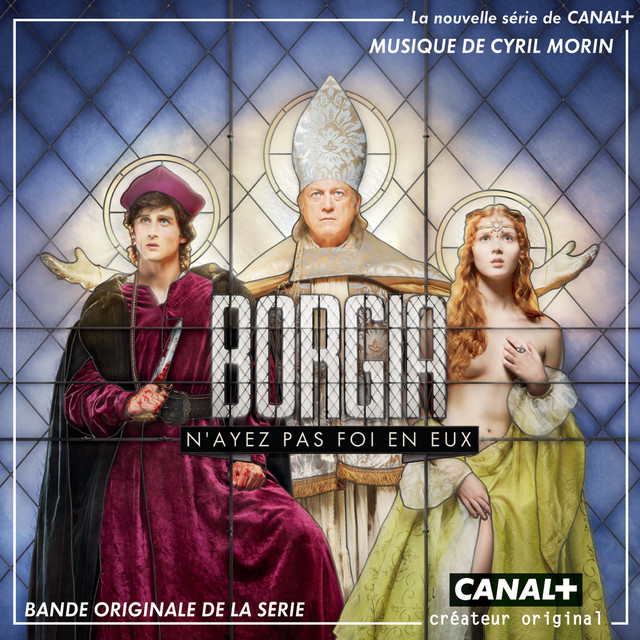
CS: Hai composto anche per miniserie TV, serial e corti di ogni genere. Trovi delle differenze nel tuo modo di scrivere per il piccolo e grande schermo? E tra le serie rilevanti vi è I Borgia del 2011 (da noi recensita), con 12 episodi da te musicati nella prima stagione. Ce ne parli?
CM: Ho avuto grandi esperienze componendo per serie francesi e internazionali. Mi piace il formato perché in termini di narrazione, i personaggi si sviluppano in un periodo di tempo più lungo. Mi piace anche la reminiscenza di un tema in tutti gli episodi. I Borgia era interessante perché mescolavo musica barocca, moderna ed etnica. Un altro triangolo. Mi piace questo movimento nel tempo attraverso la musica. Dopotutto, i sentimenti sono gli stessi nel tempo. Ci sono solo dodici sentimenti diversi da provare per un essere umano, proprio come abbiamo dodici note per esprimere la musica. Dopo I Borgia ho deciso di sviluppare i miei film. Fare un film è una vera conquista. Ma alla fine, ogni volta che trovo una squadra con un regista, che torno alla musica, sono felice.

CS: Non soltanto compositore, regista e sceneggiatore, perfino ideatore e direttore artistico dell’Apulia Soundtrack Awards che si svolge in Puglia (https://apuliasoundtrack.com/) già da due edizioni. Perché l’Italia come location di questo Premio internazionale sulle colonne sonore che ha premiato, tra gli altri, Simon Frangler (Avatar 2), Lalo Schifrin, Jean Michel Bernard e i nostri Franco Piersanti e Fabio Massimo Capogrosso (Esterno Notte, Rapito)?
CM: È stato per caso che sono diventato il direttore artistico degli “Apulia Soundtrack Awards”. Ancora una volta, si riferisce alla mia vita personale. Considerato il mio rapporto con compositori di tutto il mondo, è stato naturale creare un ponte con compositori affermati e compositori italiani. Era importante includere anche compositori emergenti da tutto il mondo. Dall’arrivo del Covid ho iniziato a tenere Masterclass a giovani compositori. Poi ho capito quanto fosse importante per loro e anche per me comunicare e parlare delle nostre carriere.
CS: Classica nostra domanda a conclusione di questa nostra chiacchierata. Cos’è per te la ‘Musica per Immagini’?
CM: Hai ragione. Certa musica non ha bisogno di immagini e nemmeno della loro evocazione. E altre creano immagini. Penso a Ryuichi Sakamoto ma penso anche a Philip Glass, Thomas Newman. Hai una categoria di compositori che lasciano gli spazi, che non riempiono il tempo con troppe note. Questa creazione di spazio permette alla mente del pubblico di integrarsi, di avere tempo per sviluppare il proprio pensiero. Questo spazio aiuta l’ascoltatore a sviluppare la propria immaginazione. Potrei inserire il mio lavoro musicale in quella categoria. Spazio, strati di strumenti che creano emozioni, profondità… eccomi!
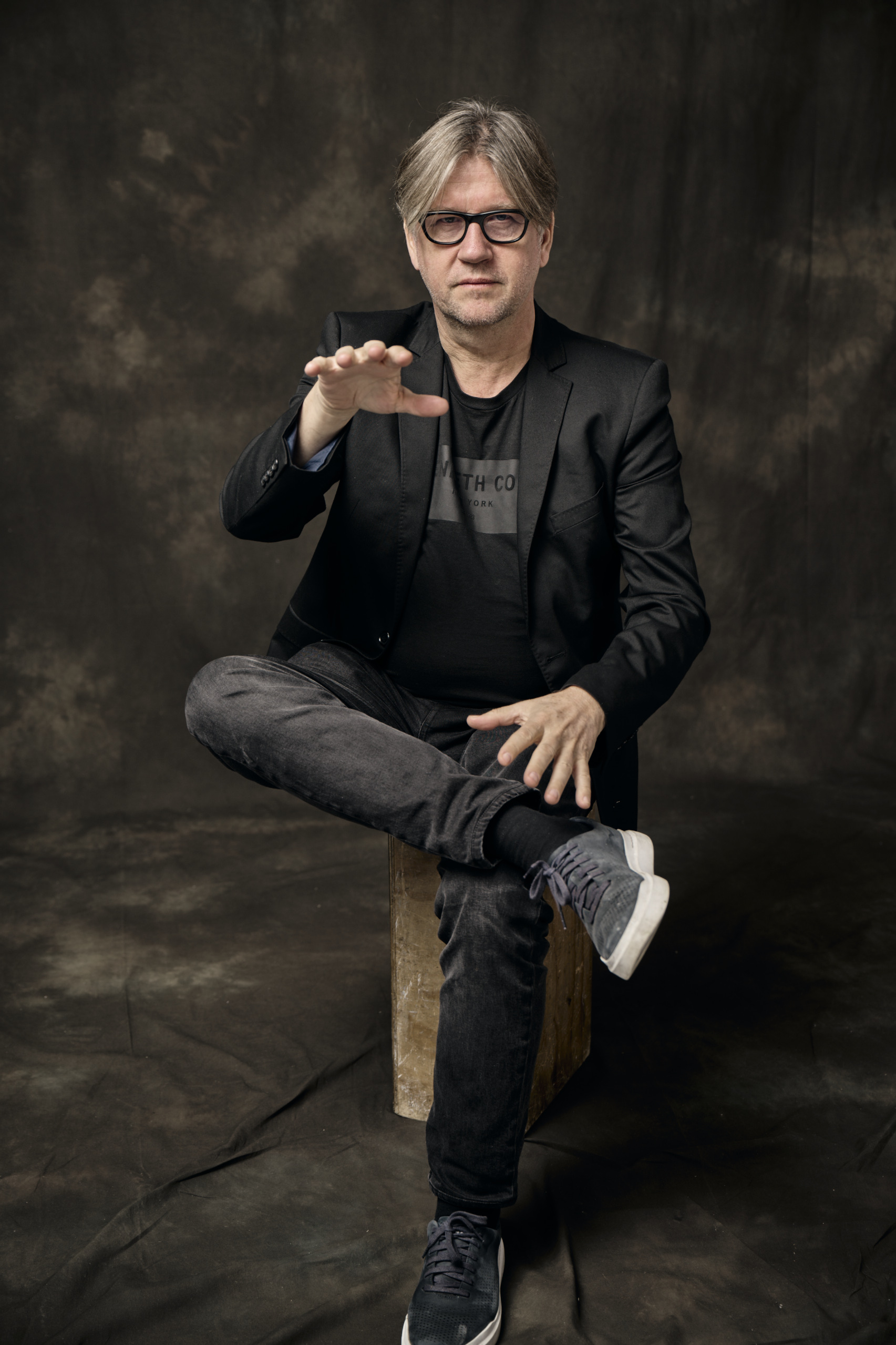
Grazie al Maestro Cyril Morin per la grande simpatia, disponibilità e amicizia
Foto ufficiali di Per Bernal
English Version:
Colonne Sonore: You entered music applied to images in the early 90s, writing for some short films and TV films. Where does your passion for music originate from and why did you decide to dedicate yourself to composing for cinema and television in particular?
Cyril Morin: For me, music and cinema were separated for a long time until the 90s. I played guitar in different bands and I was also a big cinema fan. It was later that someone mentioned that my music went well with fiction, after I had made some instrumentals. Then I started to believe it (laughs). Then I realized that my mind was imagining sounds that I couldn't reproduce. I thought I knew a lot, but I knew nothing. I returned to study music for many years. After being a front man, I went underground. Later I had the chance to approach conductors like Sergei Celibidache, Pierre Boulez and many contemporary composers. I even took a course with the Italian composers Franco Donatoni but also Xenakis, Nunes... These composers were looking for new sounds. It opened my eyes. I had to look for new sounds myself. My sound. This came with meeting the directors, and my first feature film became Samsara.
CS: What do you think is your stylistic feature in approaching music for images?
CM: It took me a while to realize that I was finally a storyteller. And music is part of the narrative, one of everal interconnected narratives like dialogue, light, sound, music, editing. I always put the story first and that allowed me to change my style over the years. But it’s true that I come back often to a repetitive triangle of sounds, Orchestra, synthesizer and traditional instruments.
CS: The award-winning film Samsara of 2001 by Pan Nalin, an adventurous and sentimental spiritual journey in the Himalayas, saw you as a notable protagonist with your score. What do you remember about this work of yours that brought you to the fore in the cine-musical panorama?
CM: This film changed my life. I started to travel with the film for promotion and I saw new horizons, meet new people. It really opened my eyes. I wouldn't separate the music I composed for Samsara and my personal life, my friendship with Pan Nalin. At that time, the philosophy of the film, the Indian spirit, was deeply ingrained in my life. It was on my way. And it's always like that. I don't separate my life from what I create or whom I create with. There is rarely a border.
And then it's incredible that I've been called from all over the world to make soundtracks with people from all over the world. It's the same now. Recently I jumped from a movie from India, then from Burkina, then from Canada/UK, and then from Greece. It's like that. I am everywhere and never in the same place. And this is my musical panorama since years now. A constant change of culture, encounters, stories…
CS: The Syrian Bride from 2004, directed by Eran Riklis, received many important awards in many parts of the world and your score received nominations for the prestigious World Soundtracks Awards and the European Film Awards. Tell us how you and Riklis worked together?
CM: With Eran Riklis, we made a good team with four films together. It was also a great meeting and still a long friendship. During the post-production of these films, I learned that cinema could really be an example of collaboration and creation between humans. On the film The Syrian Bride, all nationalities worked together, even those that some still try to oppose nowaday. Cinema is truly a collaboration without borders. It was also an opportunity to work with some Middle Eastern instruments that I had in mind at the time.
CS: Speaking of nominations and victories, you have obtained many in your career, including that for the acclaimed and multi-victorious film The Human Resources Manager (reviewed by us) from 2010, also by Eran Riklis with whom you formed an excellent partnership. What importance do you give to recognition?
CM: It’s important because these awards and nominations are career milestones. Recently, I won for music for a short film. It makes me very happy. And I didn’t get a lot of recognition at school so these awards mean something (laughs). Also, it is important to evolve in your life and career and not stay in the same place, looking up. Today I feel like I've built something, a mix of credits, experience and also sharing this experience with others. My relationship with many composers is also part of this satisfaction. We often share the same journey.
CS: You are also a director and screenwriter. Your film The Activist, a 2014 thriller that we have not yet released, brought you various satisfactions and awards. What was it like to go behind the camera and not only be the composer of the music for other people's films?
CM: I chose to direct films after having composed more than 50 films from the 2000s. For once I wanted to be at the origin of a project. But I have never made a separation in terms of creation between the different arts. I think I need to step aside sometime and not stay always in my comfort zone. I am sure that by making several films as a director, I have proven that I fear nothing (laughs). It is important to follow your feelings, even if this will disrupt habits and show you from a different perspective. After a while, I need to create a new perspective, move, go to another country, immerse myself in another culture. And that feeds my work with films and music. Also, by directing a few films, I learned to become a better composer. I know how a director feels now.
CS: Do you have a film or short or documentary or series that I haven't mentioned that has particularly satisfied you professionally and can you tell us why?
CM: Recently I made an Italian short film Super Jesus (directed by Vito Palumbo). This film travels a lot these days. About the documentary... Last year I did the music for an Italian documentary The Mayor, me , Mussolini and the museum about Mussolini’s hometown. It was so interesting. Also last year, I assembled a small team in Montana to interview Michael Spears, the Native American playing in my film The Sacrifice Zone. I had a lot of questions to ask him about his culture. The film has not yet been released, but all of the interview subjects can now be found in several documentaries about Native Americans. For another project, I have been to many places in America on the trail of tribes, from South Dakota to New Mexico, meeting wonderful people full of rich culture. Native American stories are a real source of inspiration for my screenplay and for some of my films.
CS: You have also composed for TV miniseries, serials and shorts of all genres. Do you find any differences in your way of writing for the small and big screen? And among the relevant series there is The Borgias of 2011 (reviewed by us), with 12 episodes set to music by you in the first season. Can you tell us about it?
CM: I had great experiences composing for French and international series. I like the format because in terms of storytelling, the characters develop over a longer period of time. I also like the reminiscence of a theme throughout the episodes. Borgias was interesting because I mixed baroque, modern and ethnic music. Another triangle. I like this movement in time through music. After all, feelings are the same over time. There are only twelve different feelings to have for a human being, just as we have twelve notes to express music.
After Borgias, I decided to develop my own films. Making film is a real accomplishment. But, at the end, every time I find a team with a director, that I come back to music, I'm happy.
CS: Not only composer, director and screenwriter, even creator and artistic director of the Apulia Soundtrack Awards which has been taking place in Puglia (https://apuliasoundtrack.com/) for two editions already. Why Italy as the location for this international soundtrack award which awarded, among others, Simon Franglen (Avatar 2), Lalo Schifrin, Jean Michel Bernard and our own Franco Piersanti (Il sol dell'avvenire, Il commissario Montalbano) and Fabio Massimo Capogrosso (Esterno Notte, Rapito)?
CM: It was by chance that I became the artistic director of the “Apulia Soundtrack Awards”. Again, it relates to my personal life. With my relationship with composers around the world, it was natural to create a bridge with established composers and Italian composers. It was also important to include emerging composers from around the world. Since the arrival of Covid, I started giving Masterclasses to young composers. I then realized how important it was for them and also for me to communicate and talk about our careers.
CS: Classic question of ours at the end of our chat. What is 'Music for Images' for you?
CM: You're right. Some music does not need images, or even their evocation. And others create images. I think of Ryuichi Sakamoto but I also think of Philip Glass, Thomas Newman. You have a category of composers who leave spaces, who don't fil time with too many notes. This creation of space allows the mind of the audience to integrate, to have time to develop its own thinking. This space helps the listener develop their imagination. I could put my musical work in that category. Space, layers of instruments creating emotions, depth… here I am!